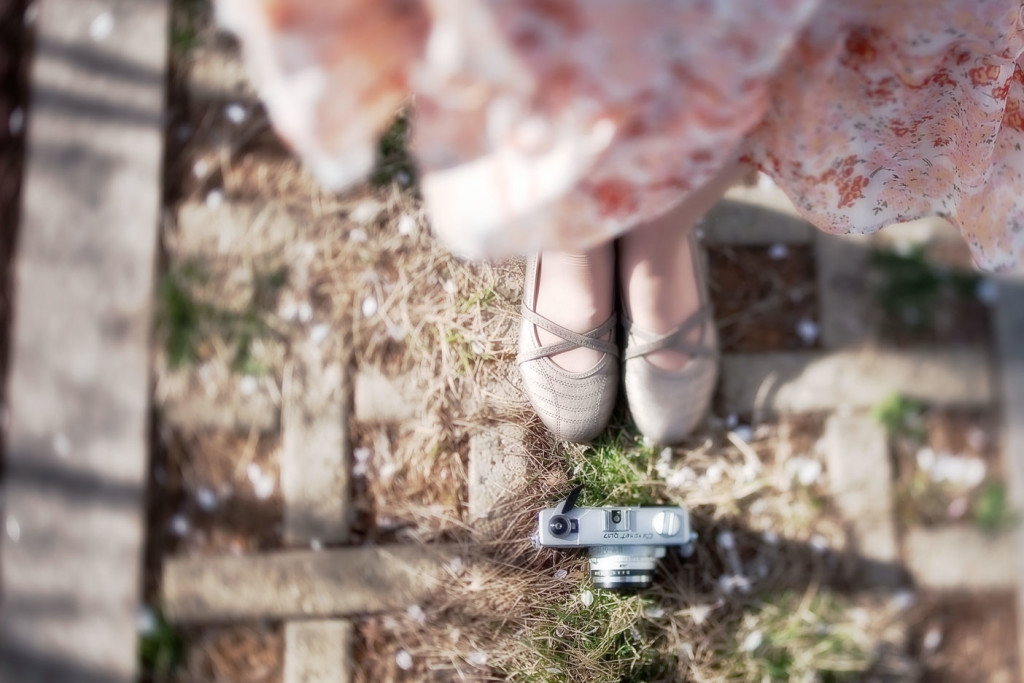How To Forgive Someone Who Has Hurt You: In 7 Steps
Forgiveness is one of the most powerful tools we have for healing and personal transformation.
Jesus, Buddha and Lao Tzu all taught that forgiveness is essential to knowing inner peace and spiritual wholeness. Now doctors and researchers realize that forgiveness is essential to our health – mental, emotional and physical.
Anger and resentment suppress the immune system and wreak havoc on our hormones. Holding a grudge has been linked to such conditions as heart disease and high blood pressure. The Mayo Clinic lists some of the health benefits of forgiveness on their website:
- Less anxiety and stress
- Lower blood pressure
- Fewer symptoms of depression
- Stronger immune system
- Healthier heart
Not to mention:
- Higher self-esteem
- Healthier relationships
- Greater spiritual and psychological well-being
Sounds pretty good, right? You bet it does. Mastering the art of forgiveness might be the greatest gift you can give yourself, and the single biggest step you can take toward a life of health, happiness and freedom.
What Forgiveness Is (And What It Isn’t)
Before we go any further, let’s take a closer look at what forgiveness really means – and what it doesn’t – and clear up some common misconceptions.
Forgiveness is a decision. It’s the decision to let go of anger, resentment and guilt about what has happened to you. It’s a conscious choice to make peace with the past, so you can live in peace in the present.
Forgiveness is a practice, like yoga, meditation, art, etc. It’s the practice of releasing toxic emotions, and shifting our attitude, our state of mind. It isn’t always easy; it requires dedication and resolve. It’s a sincere commitment to a new way of life – a life of peace.
Forgiveness does not mean:
- Forgetting what happened
- Excusing or condoning what happened
- Acting like it never happened
- Telling someone else that you forgive them
- That your relationship with the other person is “fixed”
- That you must continue to include the other person in your life
Forgiveness is an interior process — you don’t have to share it with the other person. We don’t forgive in order to benefit someone else, but in order to free ourselves from the burden of anger, bitterness, guilt and blame.
We forgive so that we can know wholeness, connected-ness, peace and joy.
Stages of Forgiveness
Forgiveness is intensely personal, and it looks and feels different for each individual, and each situation. It might be easy for you to forgive the thief who stole your car, but very difficult to forgive your partner for forgetting your birthday.
Forgiveness is emotional, not logical — it doesn’t always make sense.
But generally speaking, forgiveness unfolds in the four universal stages. Taking a closer look at these stages will helps us to understand what forgiveness is and how it works. But remember – this is just theory. In real life, there is no neat, orderly process; the stages ebb and flow and blend together.
1. Awareness
The first stage is simply becoming aware of the need to forgive. When you notice feelings of anger, bitterness or resentment toward someone or something, you have already taken the first step on the journey to forgiveness.
2. Allowing
The second stage is allowing yourself to feel and experience the full force of your emotions. Dive in to the depths of the pain, surrender to it. Open up and embrace your anger, rage, hopelessness, fear… allow it all.
Hold nothing back.
This is often the most difficult stage. Most of us are afraid to unleash these kind of emotions, and will do anything to avoid facing them. We spend years, often our whole lifetime, running and hiding from them.
If this is a struggle for you, you’re not alone. There are ways you can work through this. Find someone you trust to talk to – a professional, if necessary. Write it down in your journal. Yell at the top of your lungs. Punch a pillow if you need to. Do whatever it takes to feel it, all of it, and let it all out.
3. Acceptance
The next stage is acceptance. Again, this doesn’t mean you excuse or condone what happened. And it doesn’t mean you accept the person into your life again.
It just means you accept that it happened.
It hurt, it still hurts, and it will continue to hurt. But it’s over, it’s done – and you can’t undo it. The time and energy you spend trying to change or resist that is wasted time.
Acceptance means letting go of that resistance. You accept what happened. You accept how you feel about it, and how it has affected your life. You accept where you are and how you got here.
You accept responsibility for where you go from here.
4. Release
The final stage of forgiveness is releasing the grudge, untying the knot. You have allowed yourself to feel the full spectrum of your emotions. You have accepted how you feel, and let go of any internal resistance.
You refuse to let your life to be defined by pain, anger, guilt and resentment anymore. You refuse to let your present be controlled by your past. You can see how these toxic emotions are only hurting you. Carrying this burden is holding you back from living life to the fullest.
So you lay it down, and let it go. You move on with your life, and your heart and mind are at peace.
7 Tips For When The Going Gets Tough
Again, it’s important to remember that in real life, it’s seldom that simple.
When we’re dealing with major life issues, with deep emotional pain and trauma, it’s not likely that we will flow smoothly and easily from one stage to the next. We often get stuck. We often go backwards. We often give up, and walk away.
But the harder it is to forgive, the more important it is that you see it through. The deep, difficult traumas are the ones that cripple us, and control our lives from the shadows. The harder it is to forgive, the greater the release you will feel when you do.
Luckily, there are practical steps you can take to help you, when the going gets tough.
1. Meditate
Meditation is an invaluable aid on the path to forgiveness. Your meditation practice will help you develop focus, discipline, patience, understanding, compassion, equanimity… exactly the qualities you need to do forgiveness work.
You can even practice forgiveness during meditation. Use the four stages above as a template or guide, and mentally work through them one at a time. Imagine how it feels, that state of acceptance and release. Breathe it in. Feel it in your bones.
2. Reframe It
Sometimes all it takes to be able to forgive and let go is a shift in our thinking.
Try to change your perspective on what happened. Take your tragedy and make it a lesson, a challenge, a growth opportunity. Ask yourself, “What have I learned from this? How has this made me stronger, wiser, more compassionate?”
Instead of playing the victim, cast yourself in the role of a student, in the school of life. Focus on the positive outcomes, not the pain and suffering.
3. Put Yourself In Their Shoes
We all make mistakes. Most of the time, we do so unconsciously, accidentally. We’re so wrapped up in our own issues, in our own world, that we didn’t stop to think about the consequences of our actions, and how they might affect other people.
Even when we intentionally hurt someone else, it’s because we too are hurting. We are acting from a place of pain, and we don’t know what else to do. This is another form of unconsciousness. It’s a cycle, pain begets more pain – until someone meets that pain with forgiveness, and breaks the cycle.
Will you be that someone?
Remember a time when you screwed up, and hurt someone else. Why did you do it? How did it feel?
Empathy can be a pathway to forgiveness. If you can put yourself in the other person’s shoes, and understand why they did what they did, it will be much easier to forgive and let go.
4. Imagine Them As A Child
It can be especially difficult to forgive someone who is truly malicious, and unrepentant. Those who lie, steal, cheat and hurt others with no feeling of guilt or remorse.
In these cases, it can be helpful to imagine them as a child. Imagine them young and innocent, playful and free… and imagine what pain and trauma must have happened to them to twist them into such a cruel and thoughtless adult.
Imagine the child inside them, angry and hurting, frightened and misunderstood. Tell that child, “I’m sorry for what happened to you. I know how much it hurts. I forgive you. You didn’t know any better.”
5. Write A Letter
Sometimes there is so much we wish we could say to someone, but we can’t. Maybe they’re already gone from our lives. Or maybe they’re still around, but whenever we see them, the words just won’t come.
In these cases, it can be very healing to take what we want say and write it down. Pour out those feelings into a letter – even if you can’t give it to them. Even if they died years ago. Write the letter anyway. Put how you feel into words, and express what you wish they knew and understood.
You can give it to them, if appropriate, if they’re still alive. Or you can read your letter aloud to a relative, or your best friend. Or stick it in a drawer and re-read once in a while. Or you can set it on fire, and watch it burn (see number 6).
6. Make Your Own Ritual
Sometimes a symbolic ritual is just what we need to mark a major life change, the end of one chapter and the beginning of the next. Try acting out your own ritual to help you release your anger, lay down the burden, and untie the knot.
The burning of the letter is a powerful act, one that symbolizes giving up and letting go of all those emotions you poured out onto the paper. But that’s just one possibility – there are many others. You could plant a “forgiveness garden,” or make a symbolic pilgrimage.
Choose one that seems right to you, or design your own ritual to mark the end of resentment, and the beginning of peace, happiness and freedom.
7. Pray, Ask For Help
When we have tried everything we know how to do, given it all we have, and we still aren’t able to let go of our anger and blame… we have to ask for help.
Turn to God, Spirit, the universe, your Higher Power, your Innermost Self. Humbly ask for help in releasing this burden. Ask for wisdom and guidance to know what to do, and patience and strength to see it through.
If you don’t believe in God, and you aren’t comfortable praying, find someone you can ask for help. Find an experienced professional, a therapist or a life coach. Seek out a mentor; someone with real wisdom and life experience, someone you respect and trust.
Share your struggles, and ask for help. Listen deeply to the response. Be willing to see things in new ways, to change how you think and approach the situation.
Be willing to change and grow.
Forgive Yourself, Too
Remember, forgiveness is a practice – just like mastering an instrument, or a martial art.
To reach the state of total acceptance, freedom and release, it takes a lifetime of commitment and repetition. Practice every day, with little things, like when someone is rude to you or cuts you off in traffic. Whenever you feel the first stirrings of anger and blame, let it go.
But of all the people who you need to forgive, one is the most important.
There is one person who you spend more time with than anyone else – every minute of every day, in fact. There is one person whose thoughts, feelings, decisions and actions affect your life more than anyone or anything else.
And that’s you.
Sometimes forgiving ourselves is the hardest practice of all – and the most powerful. Nobody’s perfect. We all make mistakes. That doesn’t mean we have to go through life beating ourselves up for the things we did wrong.
Make sure your forgiveness also extends to the precious, beautiful soul you see when you look in the mirror.














doris
yes!
zenful
🙂 Glad you liked it!
winnie valcancivk
This is the best article on forgiveness I have
read..I want to ponder and pray with it. I know it will help me with inner healing!
Thank you so much.
zenful
Glad you liked the post. Looking forward to hearing much more from you on here.
🙂